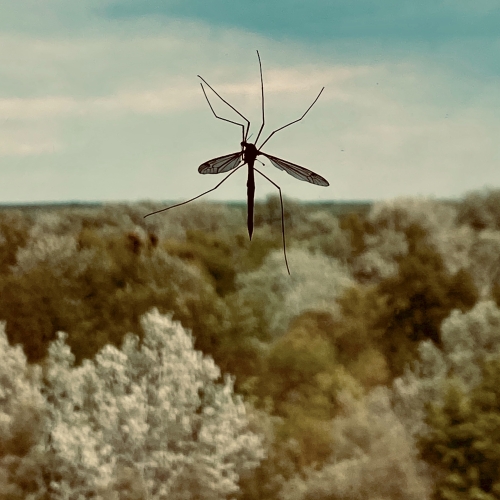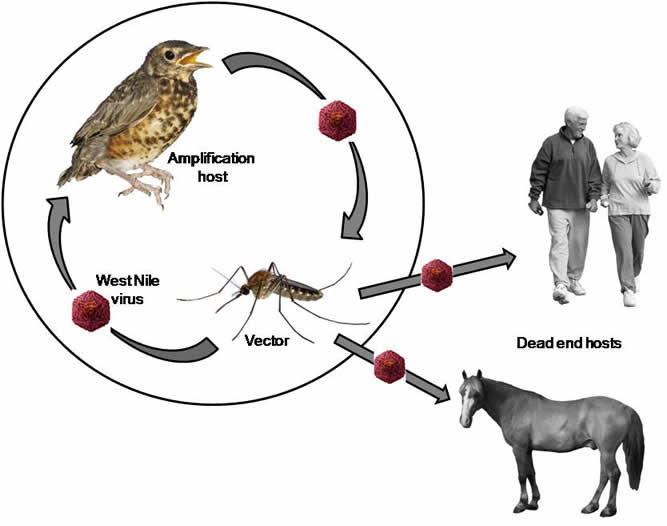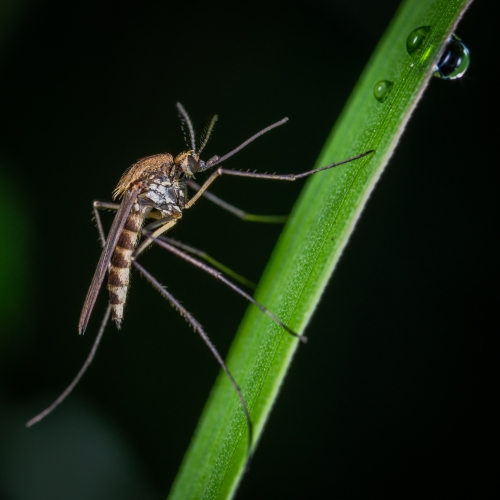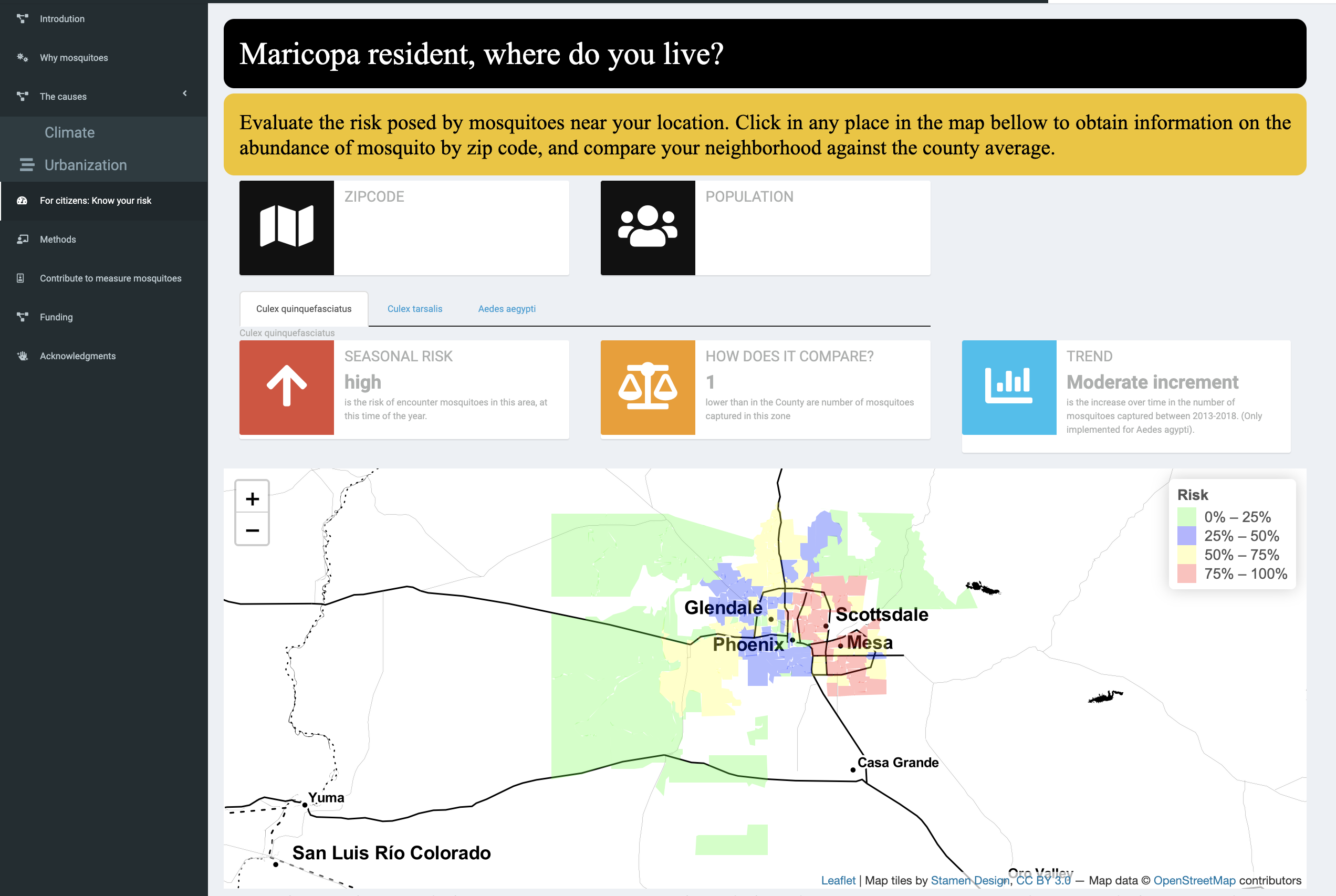
Eco-health knowledge exchange for disease vector control in Maricopa County
Andres Baeza-Castro, ASU Global Drylands Center
"In 2019, Arizona reported 45% of all West Nile virus deaths in the USA."
- Arizona Department of Health Sciences
Background
As changes in climate and land use swell mosquito populations in the southwestern U.S., the threat of mosquito-borne illnesses grows with them. In Maricopa County, Arizona, outbreaks of mosquito-transmitted viruses such as West Nile have generated authorities' concern.
Understanding the relationship between risk and risk perception can inform authorities about the best ways to improve community engagement, a critical step for controlling mosquito populations and mitigating this risk.
Research questions
-
Is the population aware of the health risk and the environmental determinants of risk in their neighborhood?
-
What are the environmental determinants of mosquito risk in Maricopa County?
-
Is the awareness of the risk associated with the degree of risk itself?
Methods and findings
During his fellowship, Andres Baeza-Castro quantified the differences in mosquito abundance across Maricopa County and evaluated the relationship between public awareness of mosquito-borne illness risk and the risk itself. He began by conducting Spatio-temporal analyses of mosquito surveillance data from the Maricopa County Vector Control Division. The analyses included statistical correlations between the time series of mosquito captures by epidemiological district and zip code. His team also formulated and analyzed models to understand the link between climate, land-use change, and mosquito abundance. Based on the results of the Spatio-temporal analyses, they surveyed four zip codes of Maricopa County with different combinations of mosquito population and average family income.
Baeza-Castro found a significant difference in the abundance of populations of mosquitoes between traps located in rural areas versus traps located in districts with a higher proportion of urban coverage. He found both temperature and rainfall to be important factors in the temporal dynamics of mosquito populations. Localized differences in temperature have a significant effect on the spatial distribution of risk. Traps located in areas of high heat but low vegetation tend to capture fewer mosquitoes than traps located near trees and low vegetation. Preliminary results from the survey indicated that risk awareness is higher in zones with high risk, yet other socio-economic factors could be associated with the risk itself.
In order to help community members and public health officials understand and manage mosquito-related risks, Baeza-Castro used these findings to create a decision-support tool that integrates the Vector Control mosquito surveillance system with his modeling and statistical analyses.
Partners
- Maricopa County Vector Control
- VectorAnalytica, Inc.
Impact
The risk of encountering mosquitoes is localized in urban neighborhoods, despite the socioeconomic status of its residents. Green areas and trees contribute to mosquito populations' persistence in months outside monsoon season, and, conversely, areas with few trees in industrial neighborhoods have lower mosquito populations. This study also observed that residents of high-population areas are aware of the risk posed by mosquitoes. However, even in areas without exposure to mosquitoes, communities remain aware of the risk. Campaigns to promote awareness will be most effective in areas of high exposure.
Deliverables
Explore Baeza-Castro's decision support tool below to learn more about the risk of mosquito-borne illness in your area. This tool provides integrated analysis and reporting of mosquito data using mathematical modeling and knowledge exchange between the Maricopa County Vector Control Division and residents.
In addition to this tool, Baeza-Castro also published a paper on spatio-temporal patterns of risk and their relationship with climate and land-use change, as well as a report on the current risks and community awareness, based on survey results.
Andres Baeza-Castro
ASU Center for Global Discovery and Conservation Science
Academic Fellow, 2020
I am an environmental scientist with training in theoretical ecology, ecological modeling, and socio-environmental system thinking. My main interest as a researcher is to collaborate on the development, training, testing, and use of system-based and agent-based models of socio-ecological systems. My goal is to contribute to understand the ecological mechanisms that influence human well-being.
My work has been published in several scientific journals dedicated to sustainability science, conservation biology, and environmental management. I obtained a Ph.D. in Ecology from the University of Michigan, and a professional degree in Natural Resources Management from the University of Chile. Chile is where I'm originally from.




